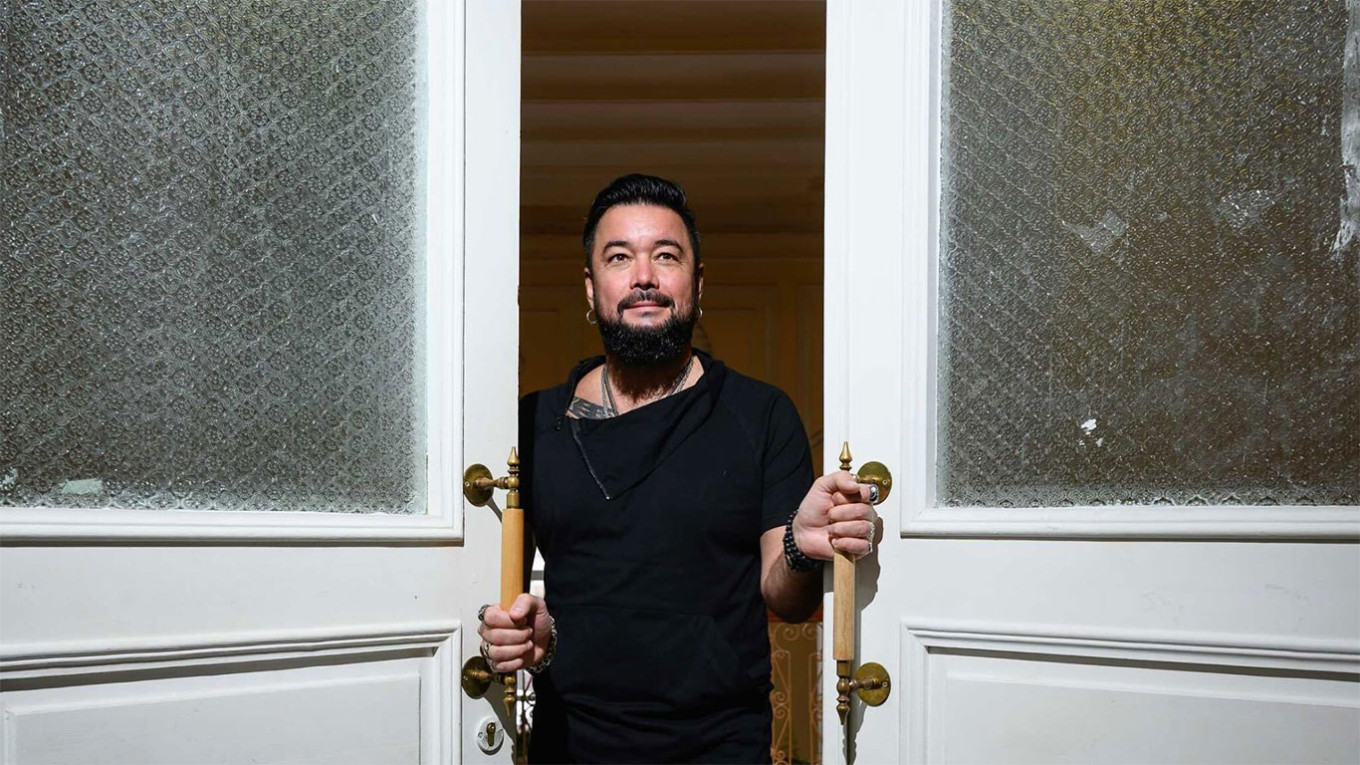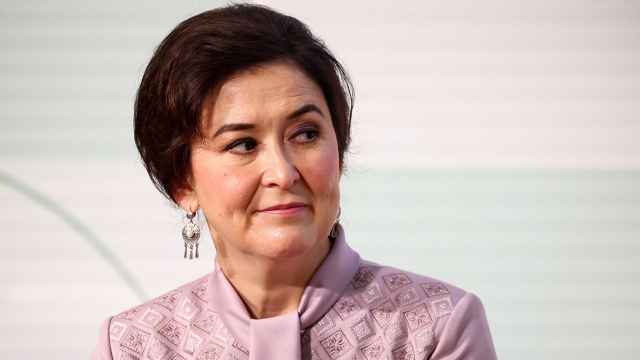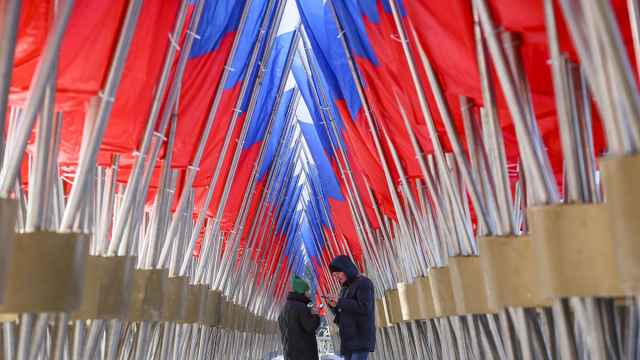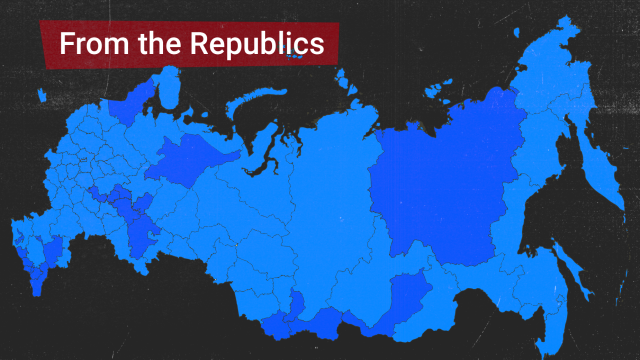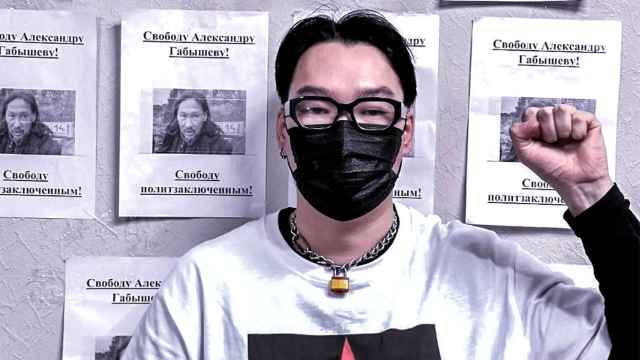“I can only cry in response,” Rostislav Murzagulov says when asked whether he feels homesick for his native republic of Bashkortostan.
For Murzagulov, a former PR chief of Bashkortostan’s head Radiy Khabirov, visiting his home republic in Russia’s Ural Mountains region is a distant prospect.
Once a self-described “systemic liberal politician,” Murzagulov resigned from his post and fled Russia months before the Kremlin invaded Ukraine.
“It was clear that the country [was] synchronically marching into a pile of dirt,” Murzagulov explains when asked about his preemptive exit.
“When you realize that you are about to become a smokescreen for justifying a war — that becomes too much. That’s when you leave behind the big money and the privileges.”
Bashkortostan made international headlines this month as the Turkic-majority region saw mass protests on a scale unprecedented in wartime Russia.
But instead of realizing what he once saw as his mission — “acting as a mediator of compromise between the government and the people” — Murzagulov is now watching the events unfold from afar.
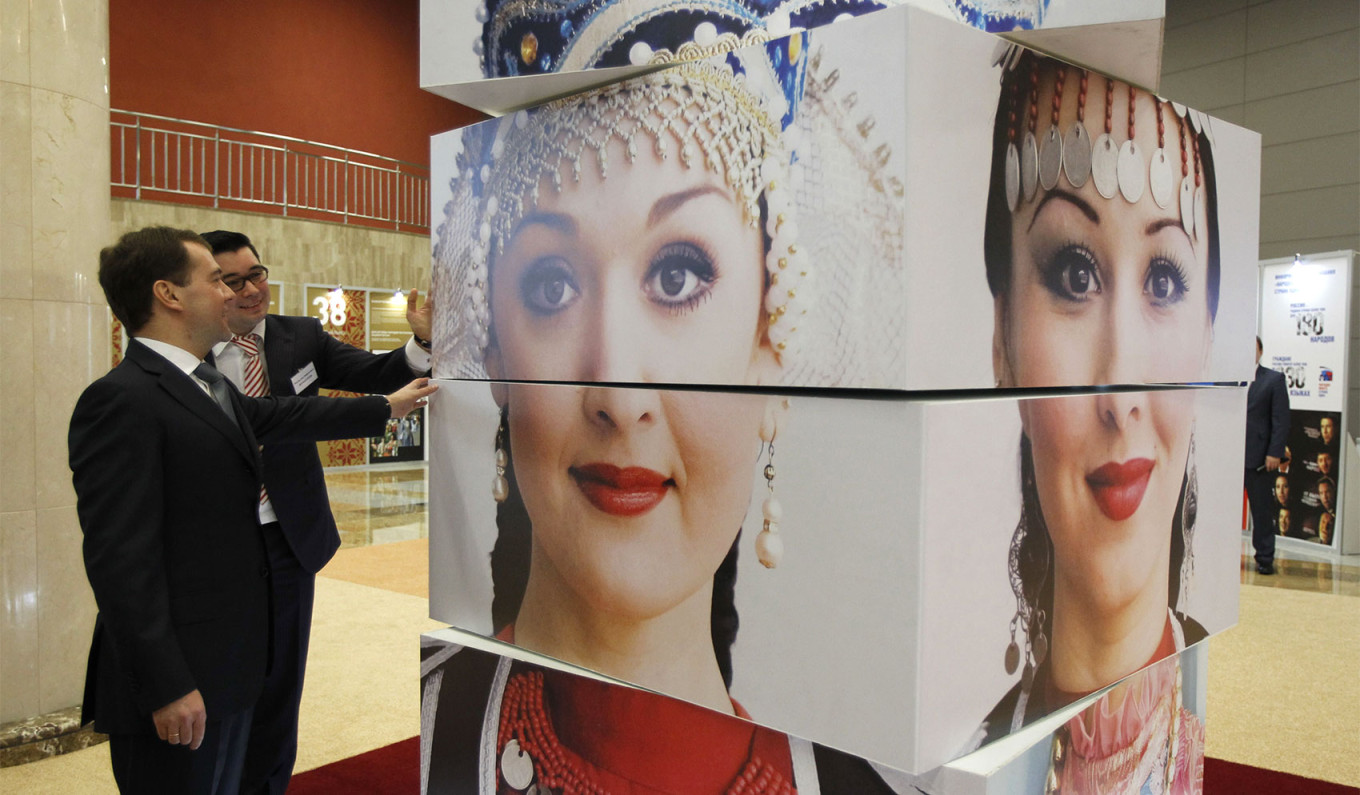
“I am stubborn. It is thanks to this stubbornness that I am now alone in the middle of nowhere in Spain, in a town that has one train to Barcelona per day,” he says in a phone interview with The Moscow Times.
“But that’s ok because I can say and do what I think is right and needed. I am a free man, though now with little money.”
It is difficult to find a regional politician — whether former or acting — more eccentric and more polarizing than 46-year-old Murzagulov.
He set the stage for his exit from the government by releasing a racy photoshoot with his now-wife, former ice hockey cheerleader Ulyana Trigubchak, as well as a music video co-produced by Morgenshtern, a now-exiled rapper of Bashkir origin.
Last year, the ex-official found himself at the center of a public quarrel between jailed Kremlin critic Alexei Navalny and exiled former oil tycoon Mikhail Khodorkovsky.
Navalny and his team criticized Khodorkovsky for hiring “collaborator” Murzagulov to host his Otkrytiye Media YouTube channel.
They alleged that the ex-official bears responsibility for the imprisonment of Navalny’s Bashkortostan coordinator Lilia Chanysheva — accusations that Murzagulov denied.
In the wake of the scandal, Murzagulov released a public apology letter to Chanysheva titled “I was wrong, but you were right. I am sorry.”
“She replied with something rude, so I decided not to read it. But, well, she had the right to do so,” recalls Murzagulov.
“What I said about people like Chanysheva [in the past]…was vile. I understand now that it was an attempt to justify why I was there [in the system] and made use of all the benefits [it offered].”
In Bashkortostan, most remember Murzagulov for his firm criticism of the 2020 protest in defense of Kushtau, a mountain considered sacred by many ethnic Bashkirs whose existence was threatened by proposed limestone mining.
Murzagulov at the time headed the board of directors of Bashinform, the region’s flagship government news agency. In the wake of the demonstrations, many activists and their supporters accused him of being the chief architect of a smear campaign against the protesters and called for his resignation.
But unlike his relationship with Russia’s mainstream liberal opposition, which has evolved over the years, Murzagulov’s stance on the Kushtau protests appears to remain unchanged.
“If Kushtau happened again, I would do exactly the same thing,” he says, claiming that he “warned” the activists both in private and through public statements “that they are playing the dirty game of dividing assets.”
“They didn’t hear me or listen to me,” Murzagulov says with a note of irritation.
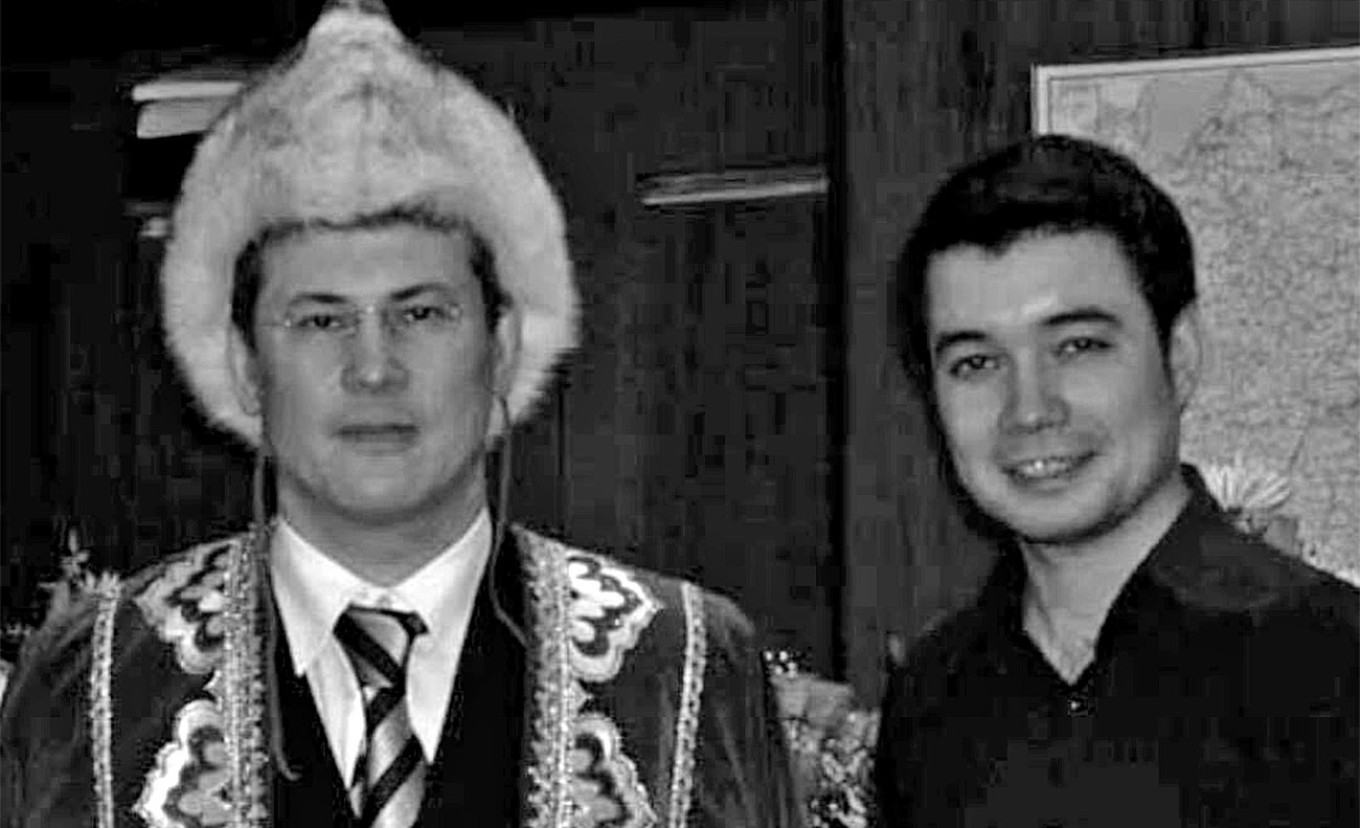
The Bashkir Soda Company (BSK), the instigator and key beneficiary of the planned limestone mining at Kushtau, came under the control of Bashkortostan’s government in the aftermath of the protests. But in 2022 BSK was sold to a firm linked to Putin-linked oligarchs Boris and Arkady Rotenberg.
Murzagulov claims to have been aware of this scheme all along.
“Many people realized that I was right. I am now back in contact with many of those with whom my relations soured because of Kushtau,” says Murzagulov.
Murzagulov believes that if mining works at Kushtau mountain — which was awarded the status of a protected natural territory after the protests — went ahead, Bashkortostan would receive a guaranteed yearly income of up to 7 billion rubles ($78,435,000).
“The money that the republic was getting from soda [production] could be used to improve half of the republic, which is now drowning in sh*t,” he says.
Unlike other ethnic Bashkirs, Murzagulov says he doesn’t believe in the mountain’s sacred value either.
“When I see yet another activist talking about this hill that is 200 million years old, I say ‘What an idiot, every stone on the planet Earth is 200 million years old!’”
This profit-focused view on Kushtau appears to be in line with the approach adopted by his ally and new employer Khodorkovsky. According to Murzagulov, the ex-tycoon puts economic considerations at the core of his fierce opposition to pro-sovereignty movements from Russia’s ethnic republics.
“His views aren’t imperial, his views are pragmatic,” Murzagulov retorts when asked to comment on indigenous activists’ frequent criticisms of Khodorkovsky for harboring “imperial” views.
“I think he has no wish to destroy Bashkiria’s culture, its unique national traits,” he says, using a commonly used Russian-language nickname for Bashkortostan. “He is all right in the head when it comes to that. … When he criticizes separatism, he does so exclusively out of pragmatism.”
When the conversation turns to the recent protests in Bashkortostan, Murzagulov names “poverty” as “the main reason” fueling them.
“Fayil is a handsome man, he has also learned how to speak [in public] pretty well and lead the people. But, of course, he was just one of the reasons,” says Murzagulov, referring to Bashkir activist Fayil Alsynov, whose imprisonment on charges of “inciting interethnic hatred” ignited this month’s protests.
His business-like, pragmatic approach to political matters and enduring defeatism toward the movement to defend Kushtau notwithstanding, Murzagulov seems to be hopeful that the ongoing discontent in the republic will not end in his former Kremlin-aligned boss Khabirov’s favor.
“I think Moscow made a mistake,” says Murzagulov when asked about the mass arrests unfolding in the region.
“Our boys there will mend the wounds, get together and go [to protest] again, though it will be with much more force next time. This could actually become the starting point of a countrywide anti-Putin uprising in Russia.”
A Message from The Moscow Times:
Dear readers,
We are facing unprecedented challenges. Russia's Prosecutor General's Office has designated The Moscow Times as an "undesirable" organization, criminalizing our work and putting our staff at risk of prosecution. This follows our earlier unjust labeling as a "foreign agent."
These actions are direct attempts to silence independent journalism in Russia. The authorities claim our work "discredits the decisions of the Russian leadership." We see things differently: we strive to provide accurate, unbiased reporting on Russia.
We, the journalists of The Moscow Times, refuse to be silenced. But to continue our work, we need your help.
Your support, no matter how small, makes a world of difference. If you can, please support us monthly starting from just $2. It's quick to set up, and every contribution makes a significant impact.
By supporting The Moscow Times, you're defending open, independent journalism in the face of repression. Thank you for standing with us.
Remind me later.



